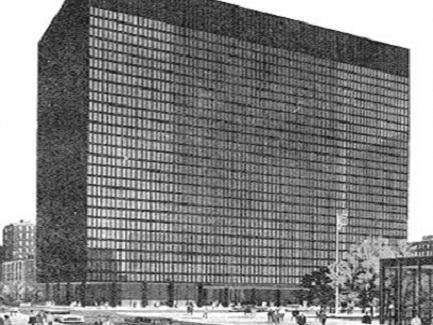Please E-mail suggested additions, comments and/or corrections to Kent@MoreLaw.Com.
Help support the publication of case reports on MoreLaw
Date: 03-16-2023
Case Style:
Adel Nassar v. Defresne Spencer Group, LLC, d/b/a Ashley Furniture
Case Number: 1:19-cv-6624
Judge: Joan H. Lefkow
Court: United States District Court for the Northern District of Illinois (Cook County)
Plaintiff's Attorney:
Defendant's Attorney: Sarah Jean Kuehnel, Jennifer L Colvin, Sam Sedaei, William Christopher Harrison
Description: Chicago, Illinois employment law lawyers represented Plaintiff, who sued Defendant on a Family and Medical Leave Act violation theory.
<
Here, the evidence only proved that all Plaintiff relayed to DSG was that his wife was not feeling well. Plaintiff neither provided notice of a serious health condition - indeed, he did not know a serious health condition existed at the time - nor mentioned his intention to request FMLA leave. Rather, he concedes that he just needed a day off, in large part because his children were too young to care for themselves. In addition, Plaintiff, as well as Defendant's witnesses have all testified that an employee seeking FMLA leave needed to contact Human Resources (“HR”) - and that Plaintiff worked with the HR manager in his area for years at the time he missed work with less than two hours' notice - but he never contacted HR to request leave. As such, Plaintiff has failed to provide sufficient evidence based on which any reasonable jury could conclude that he intended to take FMLA leave. He therefore cannot establish the fourth element of his prima facie case.
Here, the evidence only proved that all Plaintiff relayed to DSG was that his wife was not feeling well. Plaintiff neither provided notice of a serious health condition - indeed, he did not know a serious health condition existed at the time - nor mentioned his intention to request FMLA leave. Rather, he concedes that he just needed a day off, in large part because his children were too young to care for themselves. In addition, Plaintiff, as well as Defendant's witnesses have all testified that an employee seeking FMLA leave needed to contact Human Resources (“HR”) - and that Plaintiff worked with the HR manager in his area for years at the time he missed work with less than two hours' notice - but he never contacted HR to request leave. As such, Plaintiff has failed to provide sufficient evidence based on which any reasonable jury could conclude that he intended to take FMLA leave. He therefore cannot establish the fourth element of his prima facie case.
The following day, just one hour and eighteen minutes before his shift, Plaintiff told Province that he could not come into work that day because his wife was not feeling well, and there was no one to take care of the kids. Province again granted his request. At that time, Province only reminded Plaintiff that as Sales Manager, Plaintiff was responsible for finding coverage for his store during his absence. Province, Gabe Andrade, and Jeanette Miller all testified during trial that it was ultimately the Sales Manager's responsibility to find coverage for the store.
As Province testified, Plaintiff voluntarily resigned from his position after Province reminded him that it was Plaintiff's job to find coverage for the store. But even if the jury credits Plaintiff's testimony over Province's on the question of whether he resigned or was terminated, that will not be enough to show that DSG's action prejudiced him. Specifically, since Plaintiff's employment ended after he refused to either find coverage or report to work, he cannot show that DSG's actions harmed him. See, e.g., Pecora v. ADP, LLC, 232 F.Supp.3d 1213, 1227 (M.D. Fla. 2017) (defendant did not interfere with plaintiff's FMLA rights when employer would have issued the Final Warning at issue, and plaintiff voluntarily resigned from his employment following the issuance of the Final Warning); Hammon v. DHL Airways, Inc., 165 F.3d 441, 447 (6th Cir.1999) (stating that “[a]n employee who has voluntarily resigned may not maintain a suit for FMLA interference”); Brohm v. JH Properties, Inc., 149 F.3d 517, 523 (6th Cir.1998) (stating same); Thomas-Young v. Sutter Cent. Valley Hosps., No. 1:12-CV-1410 AWI SKO, 2014 WL 1096795, at *13 (E.D. Cal. Mar. 19, 2014) (holding that because plaintiff was not terminated, but voluntarily resigned, the discriminatory act of which plaintiff complains did not occur). As such, Plaintiff failed to prove that DSG took any action to interfere with his FMLA rights.
Outcome: Judgment in favor of Defendant
Plaintiff's Experts:
Defendant's Experts:
Comments:
Find a Lawyer
Find a Case


